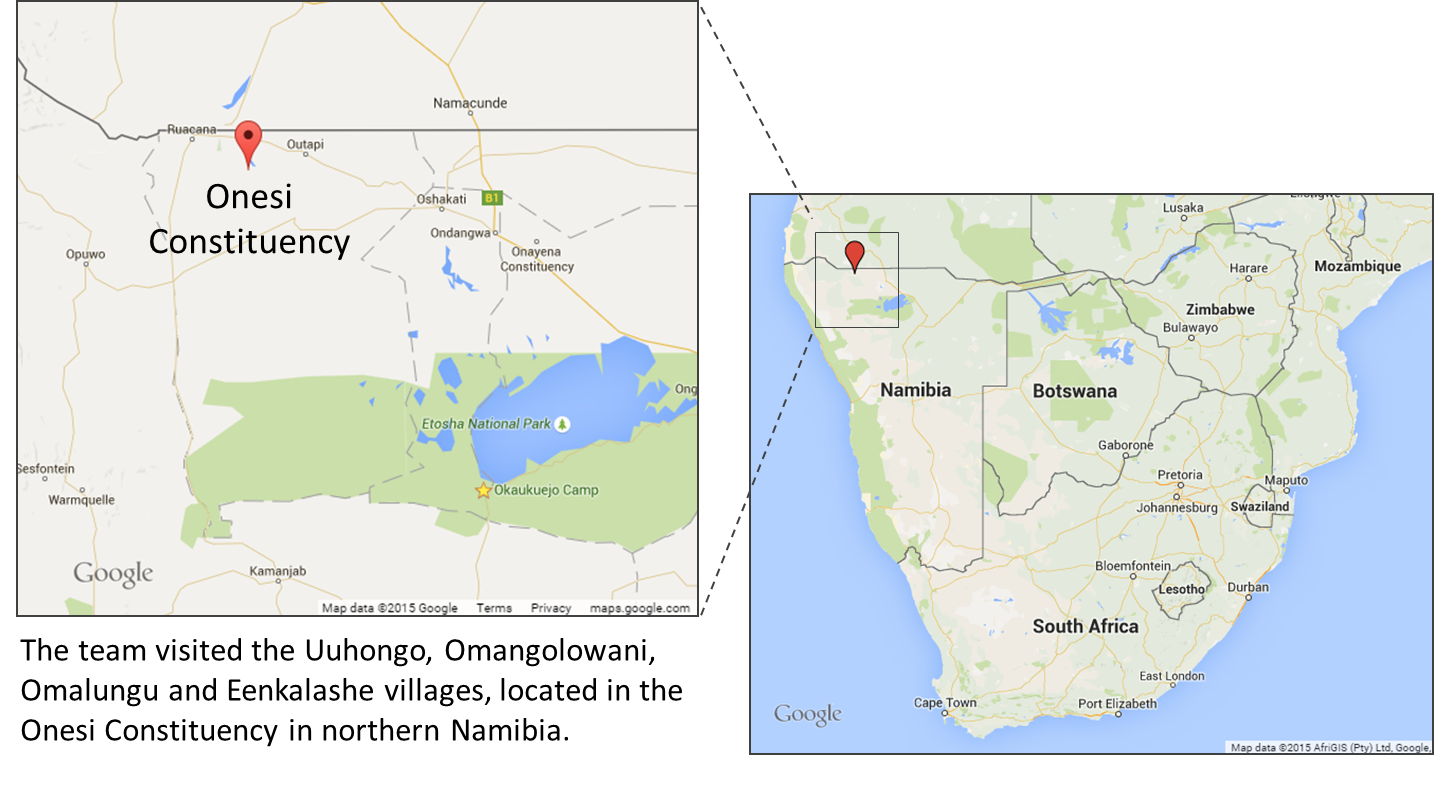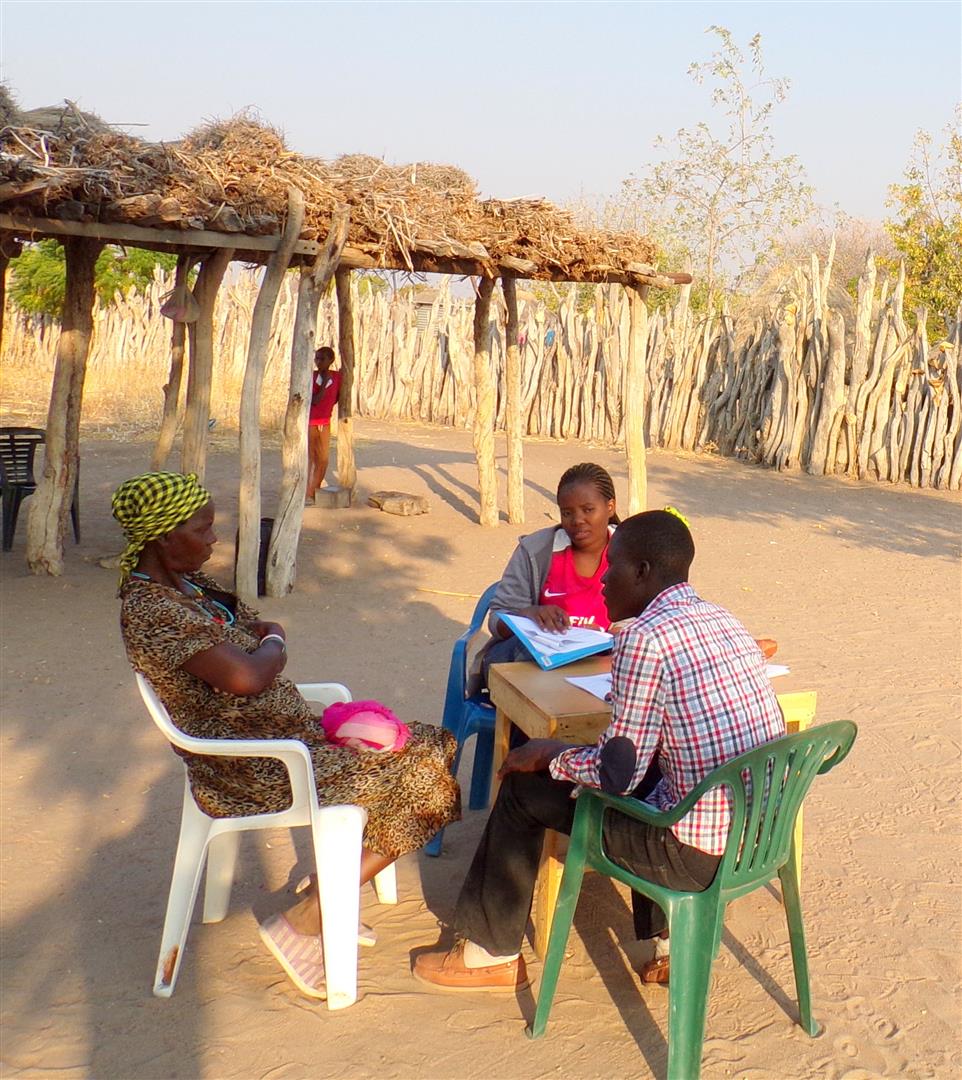Understanding wellbeing and climate change vulnerability in northern Namibia
By Steffanie âMusingarabwi and Tali Hoffman
In early July 2015, three postgraduate students from the Universities of Cape Town and Namibia conducted joint questionnaire surveys in four villages (Uuhongo, Omangolowani, Omalungu and Eenkalashe) in the Onesi Constituency in northern Namibia. We used this survey to gather important information about the wellbeing dynamics, socio-economic characteristics, time-use patterns, agency, and vulnerability of people living in these villages. Specifically, we explored how the wellbeing of villagers is affected by their vulnerabilities to climate change and the related impacts of climate change.

We selected these villages based on the advice of several key representatives from the Constituency and Traditional Authority offices. The village heads and their secretaries were extremely forthcoming and helpful throughout the survey process which allowed us to make quick and steady progress in our household sampling and door-to-door interviews. We were interested in speaking to the primary decision makers at the household level and so, across the four villages, we interviewed 93 household heads (both male and female) – or their de factos. These interviews gave us rich insights into how climate-related impacts affect the wellbeing and vulnerability of people at the household level, as well as the gender-related differences in experience that occur.

Several things stood out during the course of these interviews. We found it particularly interesting that, even though people face increasingly difficult circumstances with regards to their primary livelihoods (crop farming, livestock farming and pension receipt), they are not passive victims of changing rainfall patterns and prolonged drought. Rather, many interviewees asserted that they actively use and share their knowledge and strategies for coping with, and adapting to climate-related impacts. However, in contrast to this, some people felt that their communities are not as close-knit as many report, a factor they believe constrains access to financial support during times of difficulty.
We found that men and women tended to perceive risk in relatively similar ways. In fact, although women are generally considered to be more disadvantaged than men, their agency and adaptive capacity was improved by several factors, including: the presence of an active male authority (a man who makes decisions with, or on behalf of, a woman, e.g., husband, son or close relative), the possession of livelihood assets; access to resources and; participation in decision making.
We saw first-hand how the presence of these factors could reduce a woman’s vulnerability and improve her overall wellbeing. We met an elderly widow who – by inheriting her late husband’s livestock – was able to demonstrate more agency and adaptive capacity than a younger counterpart. Although the younger woman had access to her husband’s finance and resources, she was unable to actively participate in her household’s decision making because of the time and energy she had to allocate to her work.

The different opinions expressed during our conversations made us realise that research into climate-related vulnerability and wellbeing should try to capture the experiences of individuals within each household, rather than treat the household as a single entity. This is largely because we found that gendered experiences of climate change are not limited to differences between men and women, but are equally affected by factors such as age, caste, and ethnicity. These differences have largely remained unexplored within the studies of climate change vulnerability in the semi-arid areas of southern Africa.
This field work provided us with constructive feedback about our survey design, and helped us to establish important contact and rapport with community members, key informants and the local authority offices. These connections and this insight will guide the structure and process of the primary ASSAR survey, which we will pilot later this year on a larger village-wide scale within this same constituency. We expect this larger survey to help us generate a better understanding of the nature and experiences of climate-related vulnerabilities – and how these affect wellbeing – in the broader context of semi-arid areas in Southern Africa.